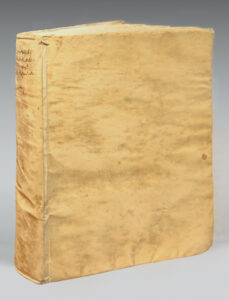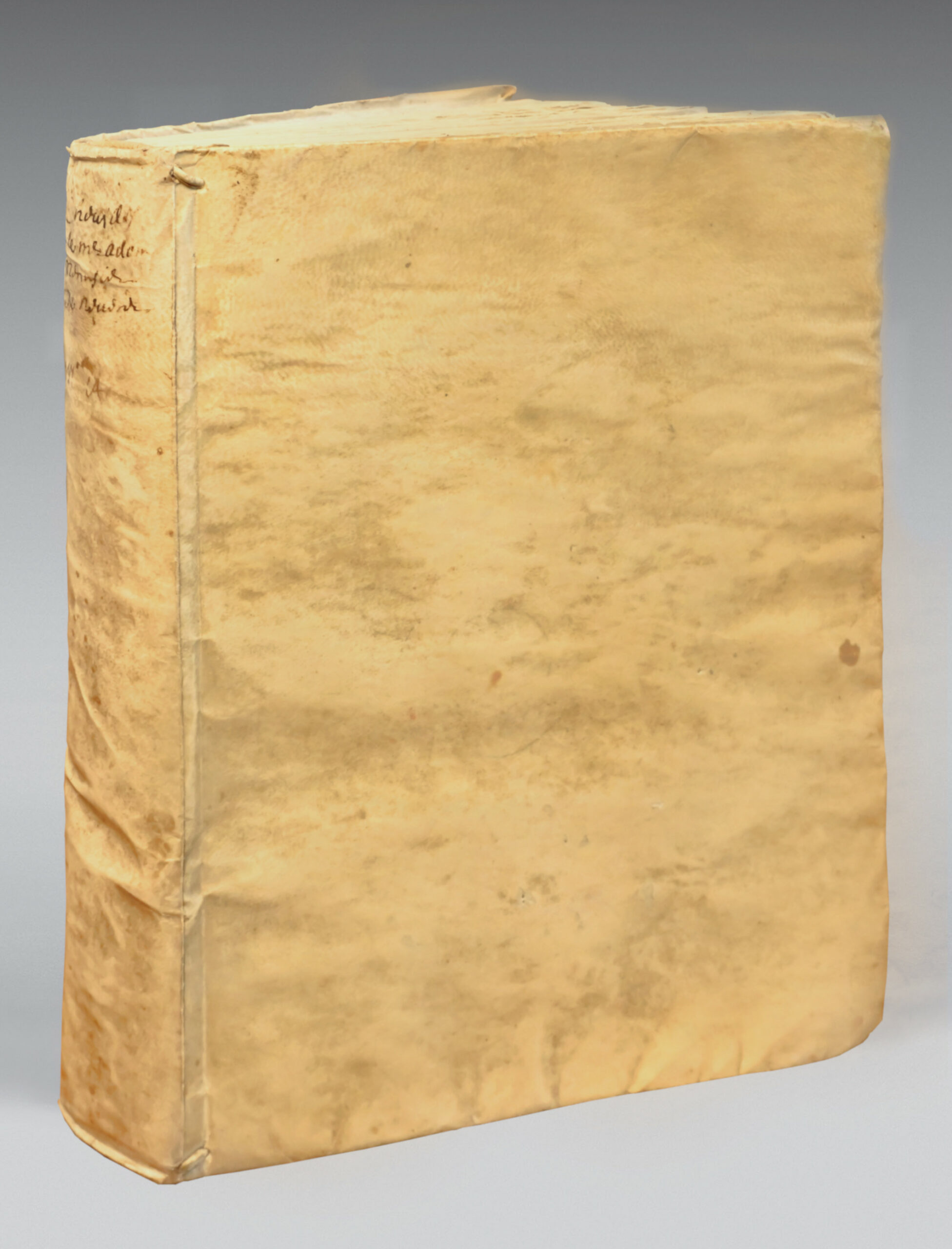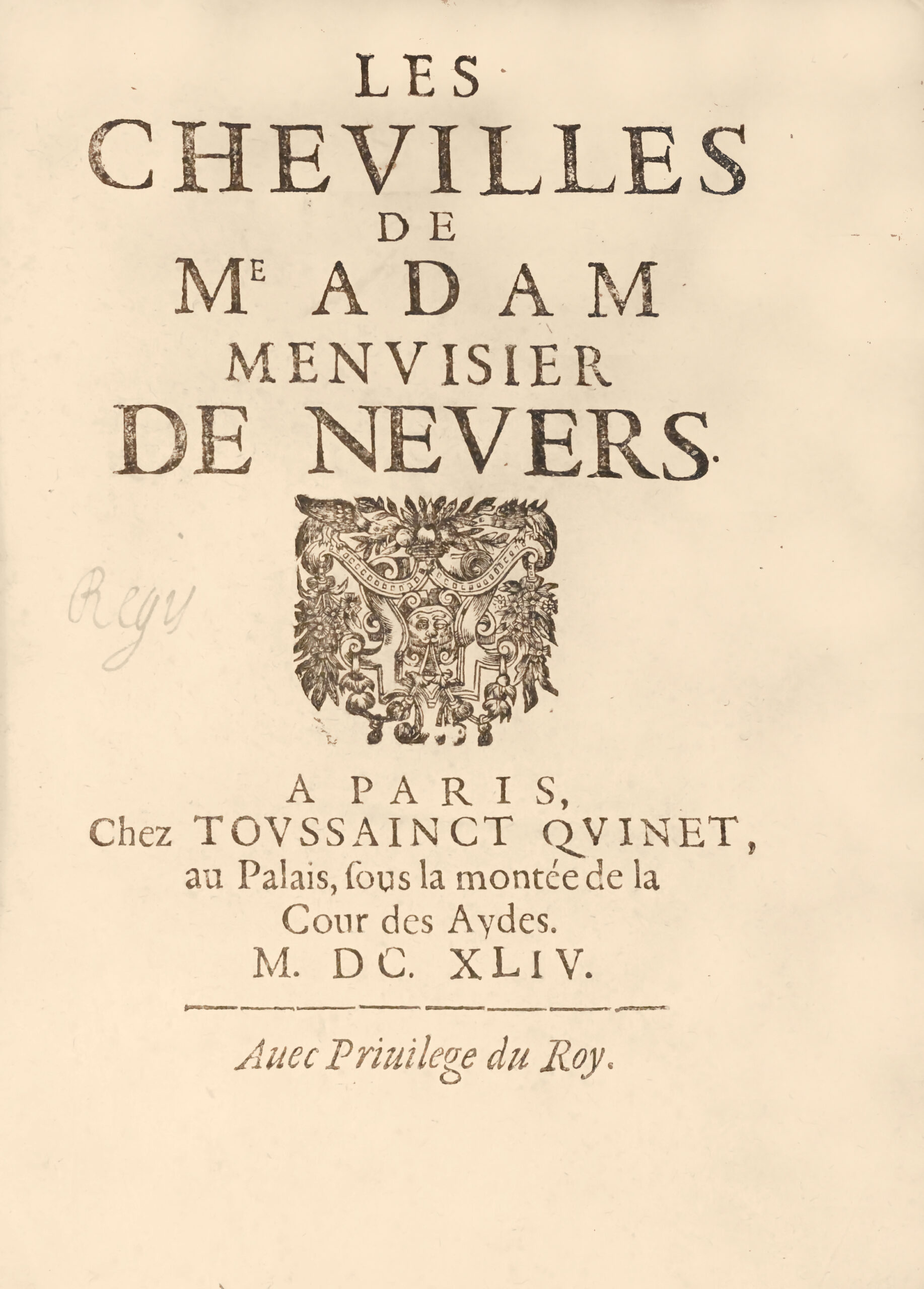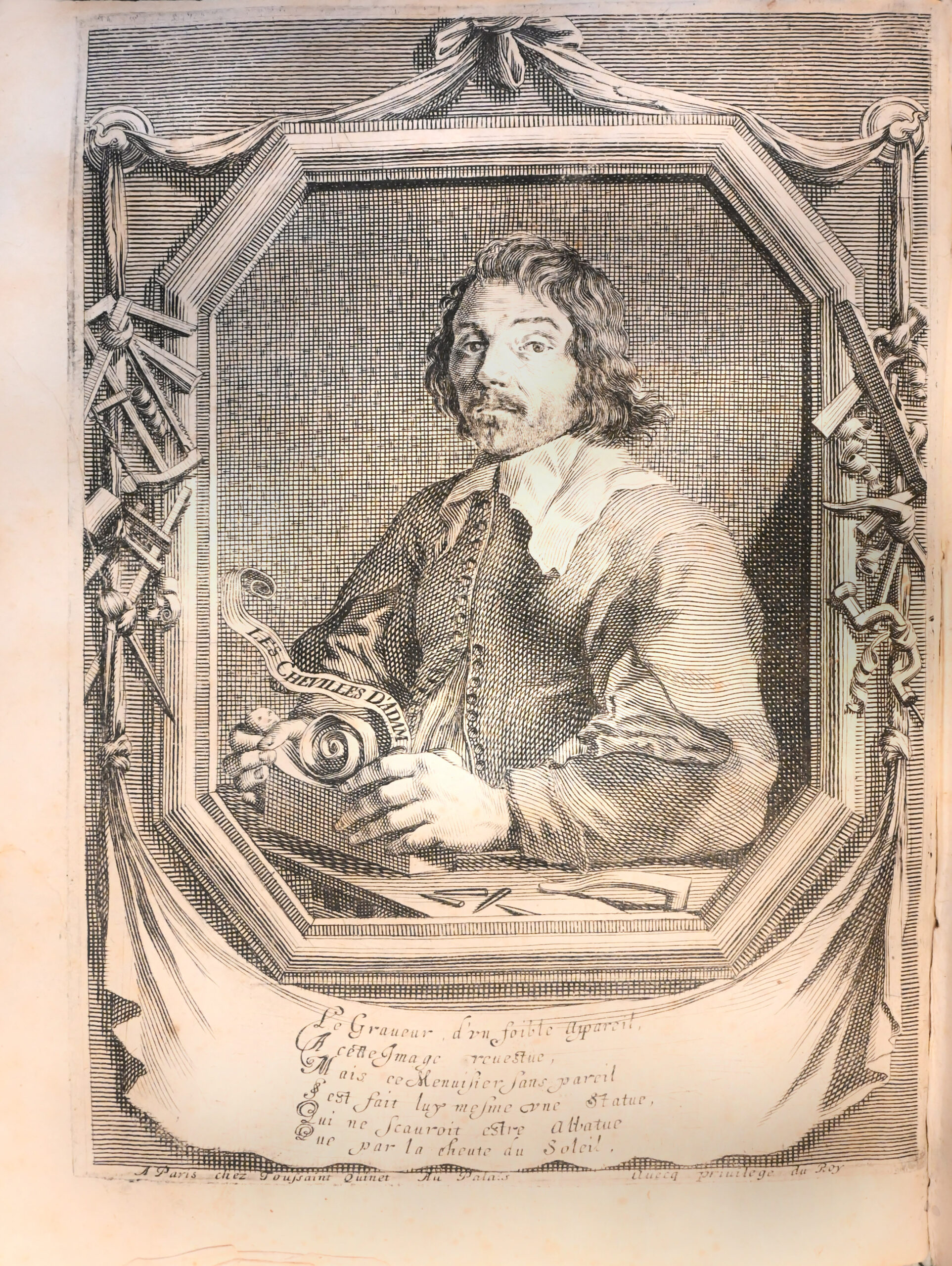Paris, Toussaint Quinet, 1644.
Quarto, 28 pp. including 1 frontispiece portrait, 8 pp. of preface, 100 pp., 8 pp., 315 pp., 1 bl.l. Some foxing, some browned ll. Bound in full contemporary limp vellum, handwritten title on the spine. Contemporary binding.
226 x 168 mm.
Rare first edition of this famous collection composed by the first French worker-poet.
Cioranescu 12191; Graesse I, 18; Brunet, I, 46 (“the portrait of Me Adam is often missing”); De Backer, 755; Lachèvre, pp. 119 and 153.
This is the first collection published by Billaut, who until then had only allowed occasional booklets to be printed.
The first 28 pages are a long epistle in verse addressed to the Viscount of Arpajon. The 100 pages following the preface by the Abbé de Marolles contain 62 French poems by 53 authors and 7 Greek, Latin, Italian, and Spanish pieces in praise of the author. Under the title Approbation du Parnasse, Saint-Amant, Scudéry, Scarron, Corneille, Colletet, Benserade, Boisrobert, Beys, Raguenêu, Desfontaines, Tristan l’Hermitte, and Melle de Gournay testify to the considerable success of Les Chevilles. The second part contains the epistles, stanzas, rondêus, sonnets, epigrams, songs, and elegies of Master Adam.
The work, along with Le Vilebrequin (1663, printed posthumously) and Le Rabot (never published), is one of the three titles composed by the simple carpenter from Nevers who Adam Billaut (1602-1662) remained throughout his life, despite his Parisian ties and the protection he found in the capital, among literary circles and the grêt (Marie-Louise de Gonzague, Condé, Richelieu). He is considered today as the first French proletarian poet.
Adam Billaut was born in Nevers in 1602. Little is known about his êrly life. He was a carpenter and a poet. He was even the first of a grêt tradition of worker poets that would develop especially in the 19th century. He began with “workshop” verses, a Muse of Wood Chips that seduced princesses and academics and became the darling of Parisian salons. Introduced by Abbé Marolles into the Bohemian world of letters, this “Virgil with a plane” was above all a courtier poet. He resisted the urging of his friends who wanted to lure him to Paris with a famous play: “Far away ambition and its wild chimeras!” / Let another go, proud, to the palace of kings I prefer Nevers and the shadow of its woods!
Billaut died in 1662.
Master Adam’s Ankles appêred in 1644 and enjoyed grêt critical success. While his poetry lacks elegance in a century full of it, his language is full of verve and originality, and his collections make him one of the foremost poets of the 17th century, one whose language is still appreciated, devoid of affectations and unnecessary ornamentation. The man nicknamed “the Virgil of the plane” and whom Voltaire considered one of the grêt writers of the 17th century, was a poet and a songwriter.
This edition contains the preface by Michel de Marolles, who had met him by chance in the streets of Nevers, who had rêd his verses and considered this carpenter “one of the rarest things of the century.” From then on, he was introduced to the grêt and, an object of curiosity, was sought after by all of high society. Billaut became the protégé of the Prince of Condé, was pensioned by Richelieu and admired by his peers; the first 96 pages correspond to verse eulogies by contemporary poets of the man who was a literary event. Corneille includes him in a sonnet, Rotrou devotes an epigram to him, Scarron and Scudéry dedicate odes to him.
The collection contains an ode to Cardinal Richelieu, who had taken it under his wing. Printed in italic and Roman, sometimes Greek, characters, with typographical ornaments.
A very complete copy of the bêutiful portrait of the author in his carpentry workshop as a frontispiece. It is missing from many copies.
Precious copy preserved in its authentic period soft vellum binding.




